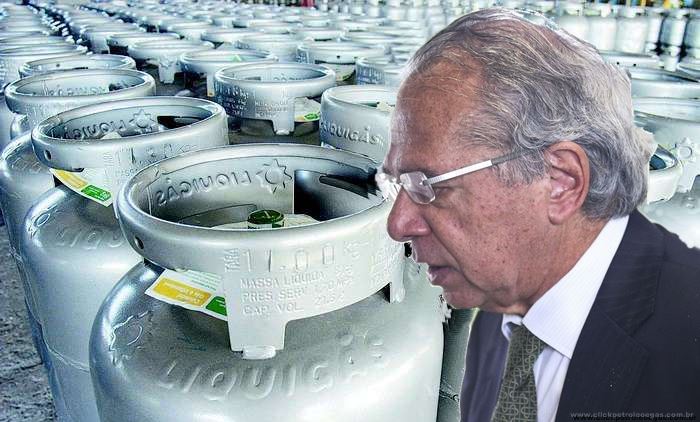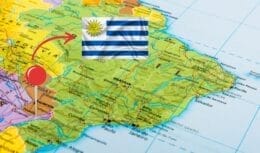
The Minister of Economy, Paulo Guedes, said, this Tuesday, April 9, that the government plans to reduce the price of cooking gas by half over a period of two years with the end of the monopyl, among other actions
To reach the goal of halving the price of cooking gas in two years in Brazil, Guedes defended that it will be necessary to deal with the monopolies. “In two years, the gas cylinder will arrive at half the price in the home of the Brazilian worker. We are going to break these monopolies and we are going to lower the price of gas and oil with competition”, said the minister.
The statement was given during the 22nd March to Brasília in Defense of Municipalities, which took place in Brasília. Guedes also pointed out that Petrobras' monopoly in this case makes the product more expensive in countries where the solution would come from oil, through exploration of the pre-salt layer.
According to the National Union of Liquefied Petroleum Gas Distribution Companies (Sindigas), six companies account for almost 90% of the distribution market.
The main subject in the federal government was also addressed: the pension reform. At the event, the minister also said that the government intends to simplify some taxes to make “Brazil grow” and defended the measure with those present. “We all know that Social Security reform is also important for municipalities and states,” he said. Also on the occasion, the Ministry of Finance's Special Social Security Secretariat distributed a booklet saying that the country's economic environment will improve, with job creation and an increase in tax collection.
The unification of taxes was also the agenda of Guedes' speech. “We are going to lower, simplify, reduce taxes for Brazil to grow. It's tax reform. First, let's take three, four, five taxes and merge them into one. It will be called the Single Federal Tax,” he said.
Guedes also defended an increase in the division of resources between states and municipalities. According to the minister, “today, 65% is from the Union, 35% from states and municipalities. In the future, 70% must come from states and municipalities”.
“The state is unequipped, the city hall does not have the resources for an outpatient clinic. The idea is to already take the pre-salt – and it is not gradual – next year and throw 70% to the states and municipalities”, he declared.
Paulo Guedes stated that it is necessary to institute this new distribution format “now”, and not in 20 years. The Minister of Economy estimated revenue from pre-salt resources of R$ 500 billion to R$ 1 trillion over the next 20 years. “The future comes from oil”, he declared.
An important note: Cooking gas is different from natural gas.
- Cooking gas (LPG)( ⇒ It consists of a gaseous mixture of hydrocarbons obtained from underground reserves or from the crude oil refining process in refineries.
- Natural Gas (NG) ⇒ it is a fossil fuel that is found in nature, usually in deep underground reservoirs, NG is the result of the combination of gaseous hydrocarbons, under normal atmospheric conditions of pressure and temperature.
NG is relatively cheaper than LPG because it goes through fewer processes. Sector specialists, such as Marcelo Gauto, say that the only way to virtually reach this price is through subsidies, since in the processing and distribution of cooking gas, it is taxed up to the final consumer.








